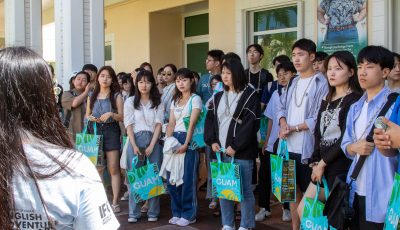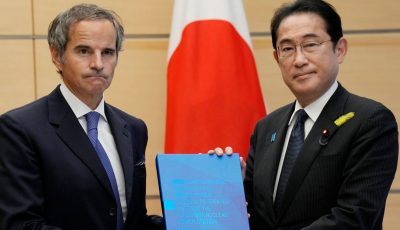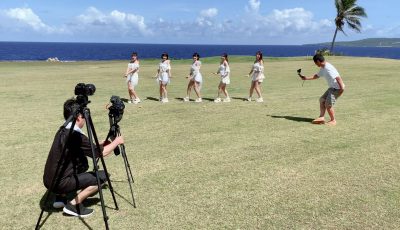The contextual reality of the present time for the people of the Marianas
Like water cutting through the rock of a mountain, we often don’t think of small contextual changes as threats to a culture, especially one that is 3,500 years old, like that of the Chamorros and Carolinians. But demographic, legal, and technological changes are like the droplets of water that gradually cut through a culture’s foundation and wreak havoc with a people’s identity.
Water can cut a large piece of rock out of a mountain—Old Man By The Sea—not because of its strength but because of its persistence (author unknown). A culture’s survival, that is, a people’s survival, is based on the same variables that allow some species to survive while leading other species to their demise. Adaptation to current changes in the people who come and leave the community; adaptation to the laws that can uproot a whole segment of society and, at other times, open the door of opportunity for still other groups; and adaptation to the technological advances that find their way into the economy that require further education beyond the 12th grade. Adaptation allows a people to thrive and survive. No one knows adaptation better than the Chamorros and the Carolinians of the CNMI, for they have adapted to nature’s interruptions as well as to social and political challenges. When the Spanish arrived, they resisted, were then all but decimated and, finally, and unwillingly adapted to a “guest” who imposed their language, their religion, their customs on a people that could not have been more different than that of this European colonizer. The Chamorros and Carolinians would adapt three more times to unwelcome invaders who stayed and built this place in the image of their homes: Germany, Japan, and the United States of America. Chamorros and Carolinians have survived because they have adapted. Let us celebrate their resiliency, their hope, and their strong survival instinct as two distinct ethnic groups that occupy the same land.
The water that shapes the culture and the present-day reality of the Chamorros and Carolinians in the early part of the 21st century, slowly and gradually (and imperceptibly), chips away at the foundation of their respective cultures. A new language, American English, is sometimes substituted, instead of added to the Chamorro and Carolinian languages. Another droplet of water is the mass digital culture projected into homes and minds through the mass mediums of cable television and the worldwide web and dissolves the homegrown culture with a culture of fiction and fake reality, convincing people here that they share similar challenges with other minorities in the mainland United States, while not really capturing the regional challenges of being an island community that borders Southeast Asia and Asia and happens to use systems from a North American country, 9,000 miles away. Things couldn’t be stranger.
Like water cutting through the rock of a mountain, we often don’t think of small contextual changes as threats to a culture, especially one that is 3,500 years old, like that of the Chamorros and Carolinians. But, the facts are different: demographic, legal, and technological changes are like the droplets of water that gradually cut through a culture’s foundation and wreak havoc with a people’s identity. The solution is simple: a focused and concerted effort to do three things to redirect the energies of people who want to sustain their culture here and adapt to an imposed culture that requires learning: a new language, new norms that are in contrast with island norms (individualism versus collectivism); and an uncomfortable and, for some, an undesirable feat of joining a colonizer’s system while not betraying their natural desire to be free from external input and externally imposed laws and standards. Before this chasm becomes too wide to cross, before this chasm leaves us with another extinct culture, before this chasm annihilates a people who have been casualties of large battles for land and geographical advantage by countries with large navies, let us consider some intensive critical care as a solution.
First, an intentional effort and focus on preserving the culture by a) using its language must occur. Decisions to speak and use the language at home will be the metric upon which this will be successful or not. The school has said it is interested in bilingual education, but the resources allocated and used to support resources (including translations in Chamorro and Carolinian, costs for printing, incentives to author books in Chamorro and Carolinian, and efforts to standardize the bilingual instruction are wanting at best). This must be a concerted community effort, if it is to have its intended success. Secondly, an intentional effort and focus on securing the place—the land—where the Chamorro and Carolinian customs and rituals are practiced, must be made by holding on to both public and private land. A culture without land has no place to practice their customs and rituals and rites of passage. A culture without land—like, present-day Assyrians (with an “A”) is an endangered culture…endangered of vanishing like so many other cultures that have already vanished (Phoenicians, Babylonians, Carthagians, etc.). Thirdly, an intentional effort and focus to codify the Chamorro and Carolinian languages in written form, so that these are recorded and hence preserved, for present and future generations.
So, there is a clear problem—that of gradual and imperceptible change that slowly chips away at the foundation of Chamorro and Carolinian cultures, as well as a clear solution to this challenge.
Societal shifts are impacting people around the world, including Chamorros and Carolinians. We will explore three of these shifts before we list particular local societal shifts that are added to this set of macro variables that further challenge (and complicate) the work of maintaining Chamorro and Carolinian identity without being lost in the values and vices of a TV and internet culture whose values are commercial and marketplace-driven, as opposed to values that emphasize familial and community values.
The macro and micro variables we will explore are the water droplets of demographic shifts, legal shifts, and technological shifts that impact every human being on the planet, including denizens of the Mariana Islands in the Western Pacific Ocean.
The world’s population has ballooned. Three-fifths or 60 percent of the world’s population is found in Asia alone, with whom we share the neighborhood as Chamorros and Carolinians. This incredible challenge has provided opportunities to entrepreneurs and to laborers alike. We have seen the impact of a developing Japan, of a developing Korea, and, now of a developing China. We adapted, not only to political colonizers, but to economic colonizers as well. Some of these people have integrated themselves into the community, while others, in their quest to get as rich as quickly as it is possible to do so and return to their homeland, have done anything and everything imaginable without one iota of care for the people of the Marianas, let alone the preservation of their culture. Demographic shifts impact all of us.
The legal shifts have impacted Chamorros and Carolinians here on a scale of a tsunami wave. It is difficult enough to create laws and enforce them to make a safer and improved community by lawmakers who live here…that’s difficult enough. When the reality that federal laws can be enacted that were created by people who have never lived here and are acting solely in the interest of the country—as opposed to acting in the interest of the Chamorros and Carolinians—then that level of uncertainty and arbitrary imposition of laws makes it futile to imagine what a great society here might look like. In other words: you cannot decide on the color you want to paint your house if you know your neighbor can come over at any time and paint over it with the color of their choice. The Chamorros and Carolinians have been handed this bad deal, and it impacts their ability to determine their own destiny.
Thirdly, the technological inventions that have become additions to society, whether it be in homes, at schools and colleges, or in the economy, have changed the way we communicate—and don’t communicate—has changed many hours of work we all do—have increased the number of hours we work in a day—and have changed how much information we have access to. Today, without knowledge of a computer, a person will not be hired as a clerk for minimum wage by the local supermarket. Think about that for a moment. Similarly, without knowledge of basic software programs, a person will not be hired in the school system and in the economy. Technological shifts (that is, “changes”) impact all of us.
Micro variables impact modern-day life and living here in the Marianas for the Chamorros and Carolinians and, in fact, for the other people who live and work here as well. These locally experienced micro shifts (i.e., “changes”) impact our present-day experience in the Marianas and include: a huge brain drain that accompanied an economic downturn that lasted nearly 20 years; a brain-substitute that has been occurring for decades which has brought English speaking people from other countries to do work here that Chamorros and Carolinians could do but for a whole lot less, thus displacing people by decisions driven by profit instead of principle; and, life as it is experienced in an atmosphere of questions concerning political status and its impact on people’s decision to participate in the economy.
Water can cut through rock as well as it can irrigate our farms, boil our food, and satisfy our thirst. The point of view that we take on these macro and micro variable—all facts…and, none opinion—will determine our attitude, which will determine what we do and, consequently, the outcome we will live with. We have to ask ourselves in the Marianas, a place where Chamorro and Carolinian cultures have thrived for 3,500 years, whether we see an opportunity or an obstacle. That choice is as important as whether we see water as a source of life for our crops or whether we see water as the knife that can separates a large rock from an enormous mountain.
Dr. Dean Papadopoulos is an associate professor of Education at the Northern Marianas College.



























